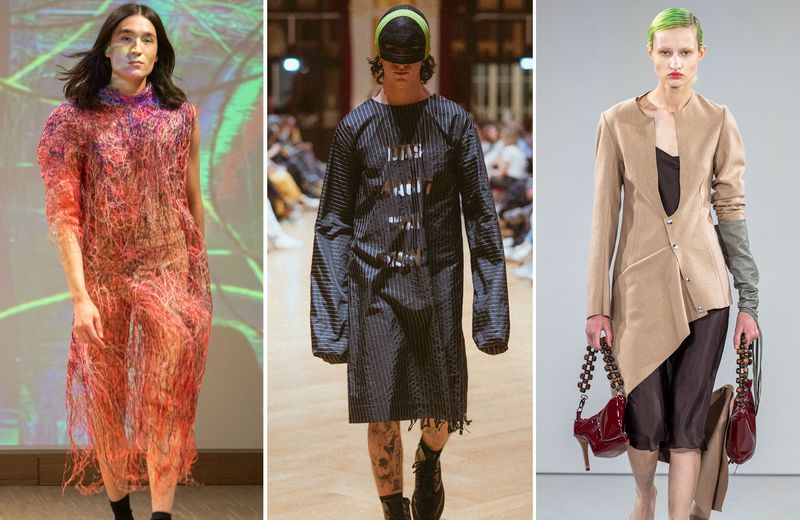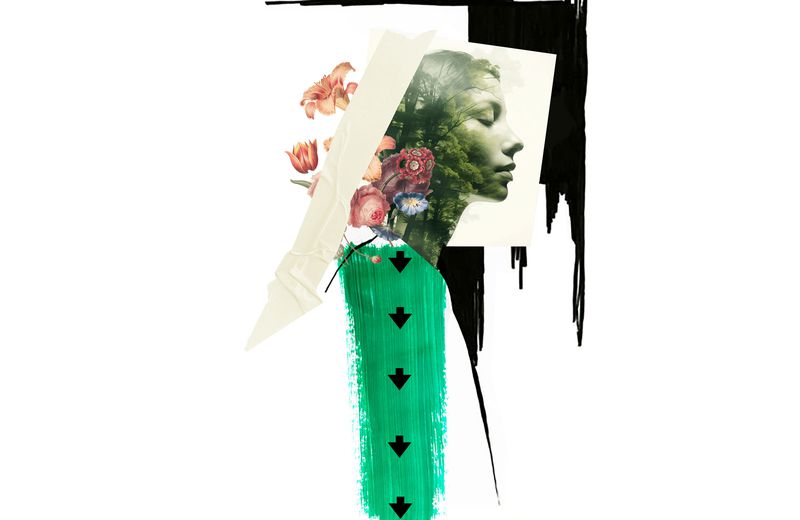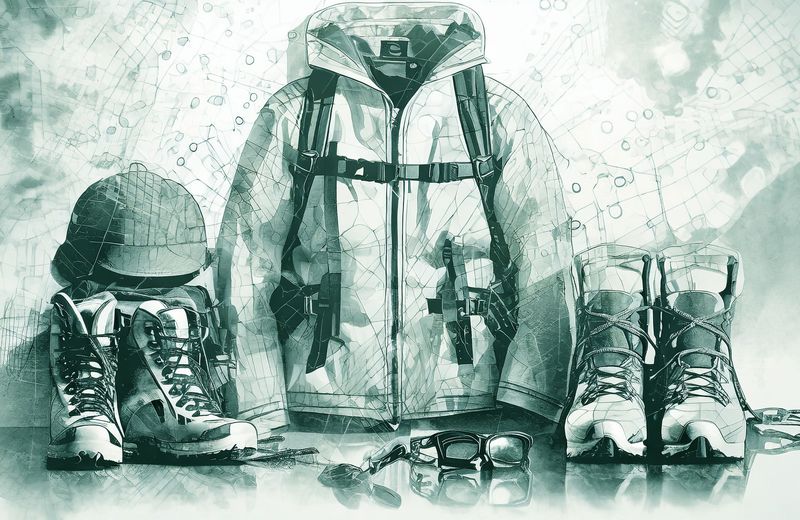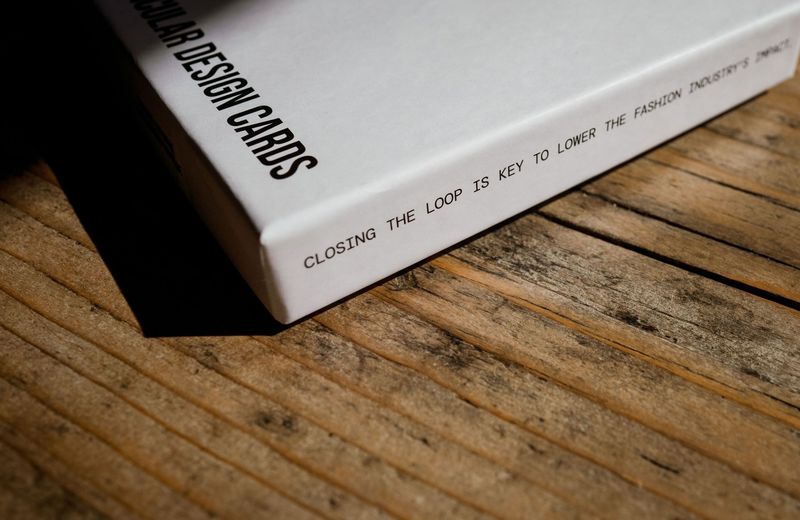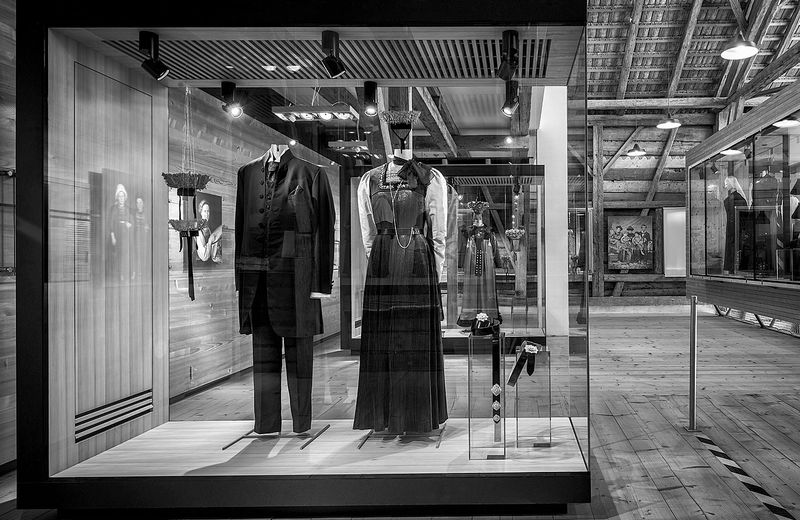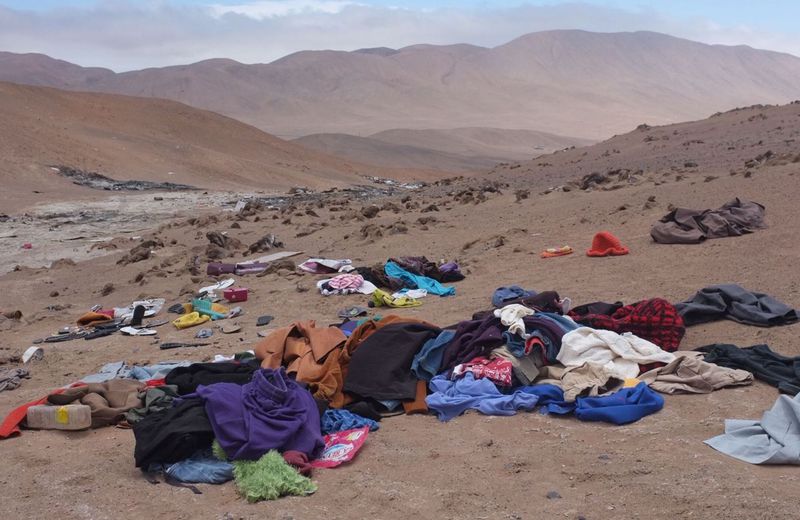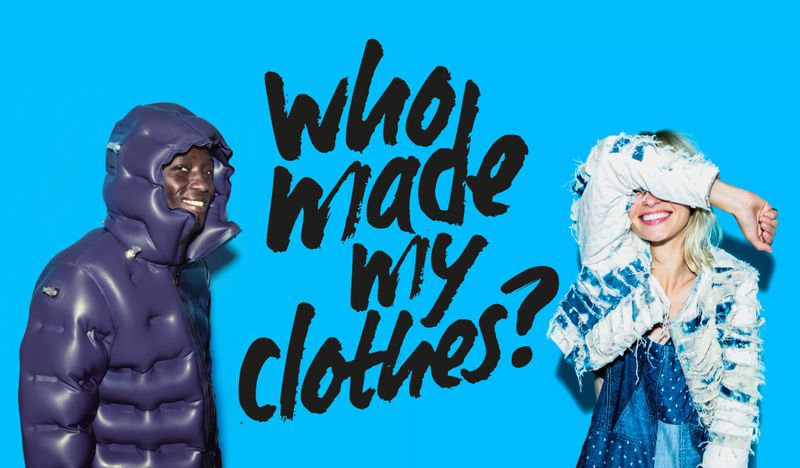
Fashion Revolution Austria
A day to ignite an attitude of change for the fashion industry – the Fashion Revolution Day comes back to Austria.
Fashion Revolution Day has become synonymous with a protest against what the mass fashion industry stands for today. Each year, on the 24th of April, dozens of countries all over the world unite to let their voice be heard, and demand transparency and humanity in fashion. On the anniversary of the tragic Bangladesh factory incident in 2013, people come together to ask brands and designers #WhoMadeMyClothes, asking for changes in an industry so tainted by sweat-shops, unfair wages, and exploitation. Everyone is encouraged to join in, as we all fashion consumers helping to create the environment.
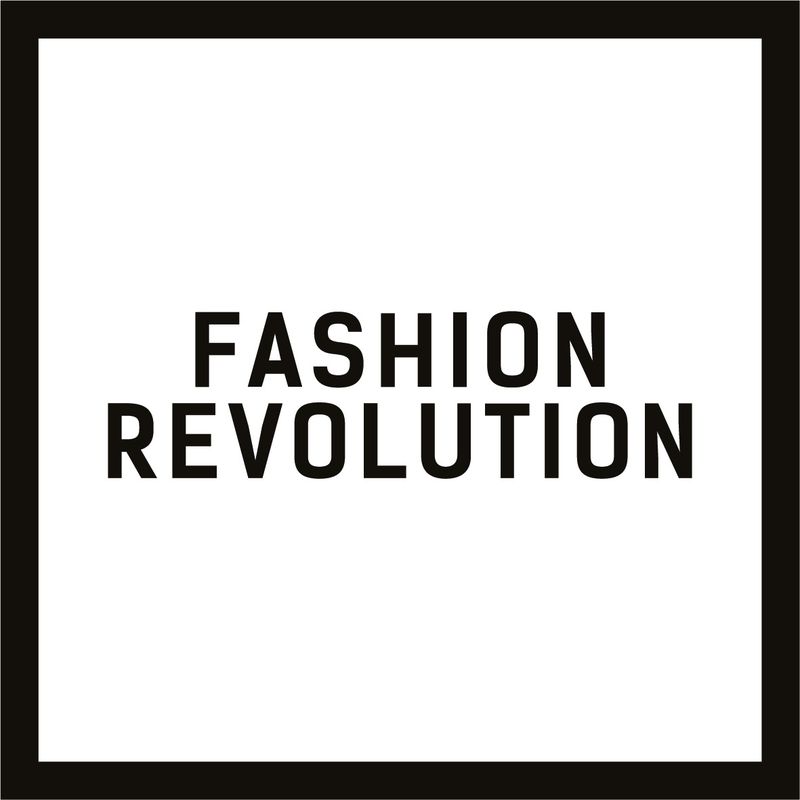
Austria is participating in the movement for the third year, and a
programme with a film screening, a flash-mob, and a fashion walk, will
invite people in to join the revolution. We spoke to the Austrian
coordinators about the concept, its future, and its impact on the
industry.
Transparency is the main issue to transform the fashion industry. From its very beginning the Fashion Revolution Campaign has raised awareness on the fact that the global fashion industry is nontransparent, exploitative and environmentally damaging. There is an ever increasing number of consumers who demand a safer, cleaner and fairer fashion industry. Not only those consumers join the Fashion Revolution who hold very high ethical standards, but also people who have recognized that terms like “fair” and “sustainable” mark the production’s rather than the design’s criterion.
A new term creation names this ethically challenging methods of fashion-production: Slow Fashion. Based on the concept of Slow Food this concept was originated in Great Britain in 2006. Within a few months after the Rana Plaza factory disaster it was spread all over the world.
Transparency is the main issue to transform the fashion industry. From its very beginning the Fashion Revolution Campaign has raised awareness on the fact that the global fashion industry is nontransparent, exploitative and environmentally damaging. There is an ever increasing number of consumers who demand a safer, cleaner and fairer fashion industry. Not only those consumers join the Fashion Revolution who hold very high ethical standards, but also people who have recognized that terms like “fair” and “sustainable” mark the production’s rather than the design’s criterion.
A new term creation names this ethically challenging methods of fashion-production: Slow Fashion. Based on the concept of Slow Food this concept was originated in Great Britain in 2006. Within a few months after the Rana Plaza factory disaster it was spread all over the world.
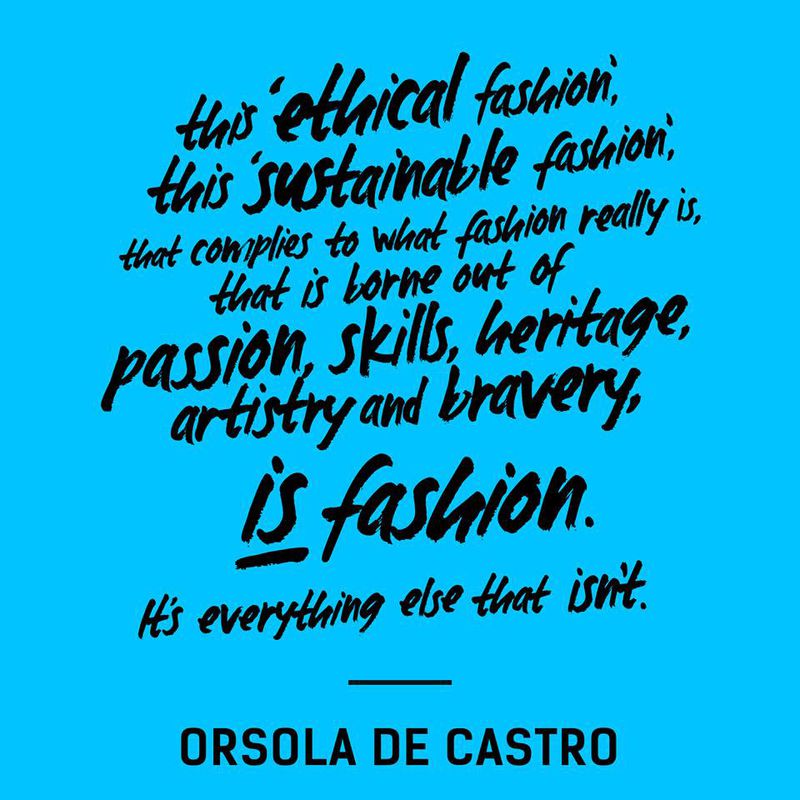
Can you explain in a few words what Fashion Revolution Day means to you and why you think it’s important to bring notice to it?
They very moment you buy a single fashion item you make the fashion industry work and you are part of it. And it is therefore our duty to take care for a fashion industry that values people and the environment. It is important to raise awareness and to call for actions.
What are some of the highlights of the programme this year?
Actually we from Fashion Revolution Austria believe that transparency is the first and most important step to transformation. We love to keep things simple and sophisticated. So we focus on the simple question “Who made my clothes?” We try to reach as many people as possible and to give them this light bulb moment. We take them to guided tours to Slow Fashion Stores, in the 7thdistrict we create a Slow-Fashion-Revolution-Mall in Kirchengasse including all located Slow Fashion Stores and a Pop-Up-Store at its end and we have a cooperation with students from the Academy of Fine Arts of Vienna.
In 2015, many designers joined in the Revolution too, do you think this is vital? Does it help create a certain sense of pressure on the other brands?
It is indeed. Right in Vienna there are lots of Slow Fashion Designers whose stores spring up like mushrooms as demand determines supply.
How can everyone get involved this year? Any special new projects?
As mentioned above, we focus on transparency. We believe that we don’t need to reinvent the wheel again and yet again, but that as consumers, our questions, our voices, our shopping habits can have the power to help change things for the better. With more consumers asking “Who made my clothes?” we believe Fashion Revolution has the power to push the industry to be more transparent and fair.
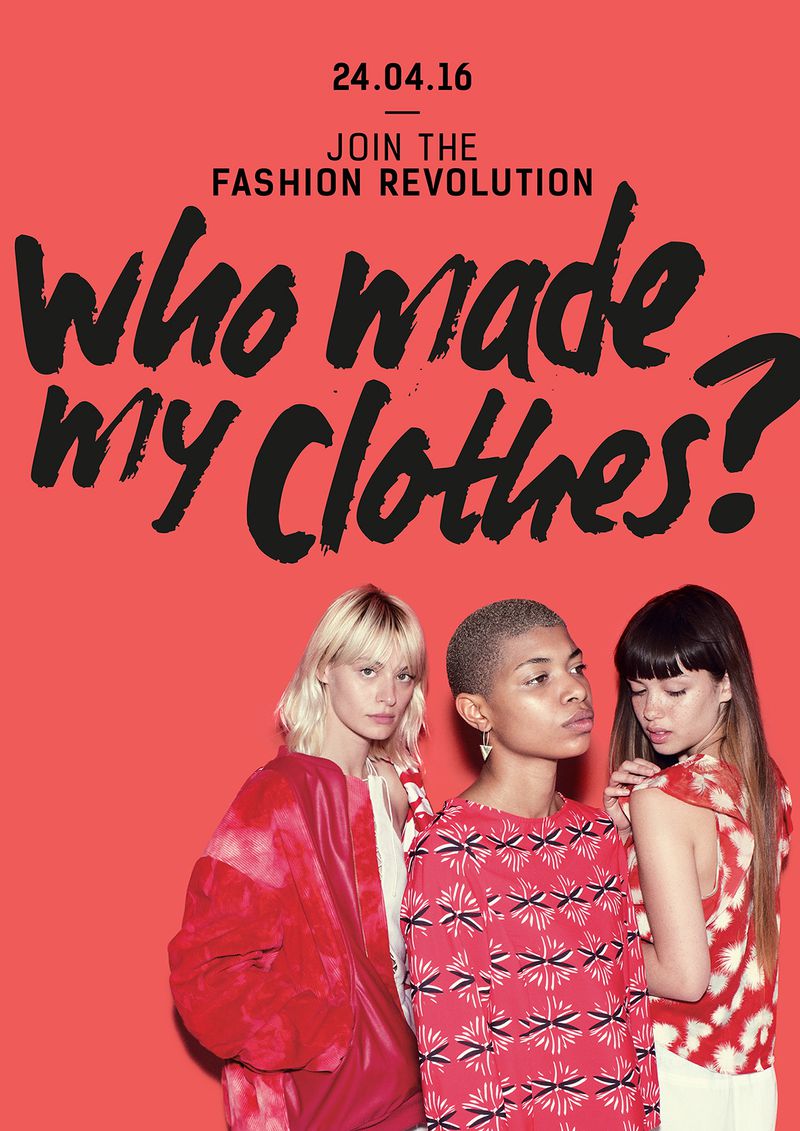
How does Austria figure in the global Fashion Revolution Day?
Among 65 participating countries we were ranking at eleven in raising awareness. A fact we were very proud of.
What are some of your hopes for the movement for the next few years?
The Rana Plaza factory disaster was neither the first nor was it the last of the fashion industry. It was simply extreme it its devastating effects. I do hope that within the next few years fashion industry disasters will finally be a thing of the past.
Join the Fashion Revolution!
Thanks to Ulrike Plichta from Fashion Revolution Austria, Initiator
of b.dressed – slow fashion sale.
Images © Fashion Revolution
